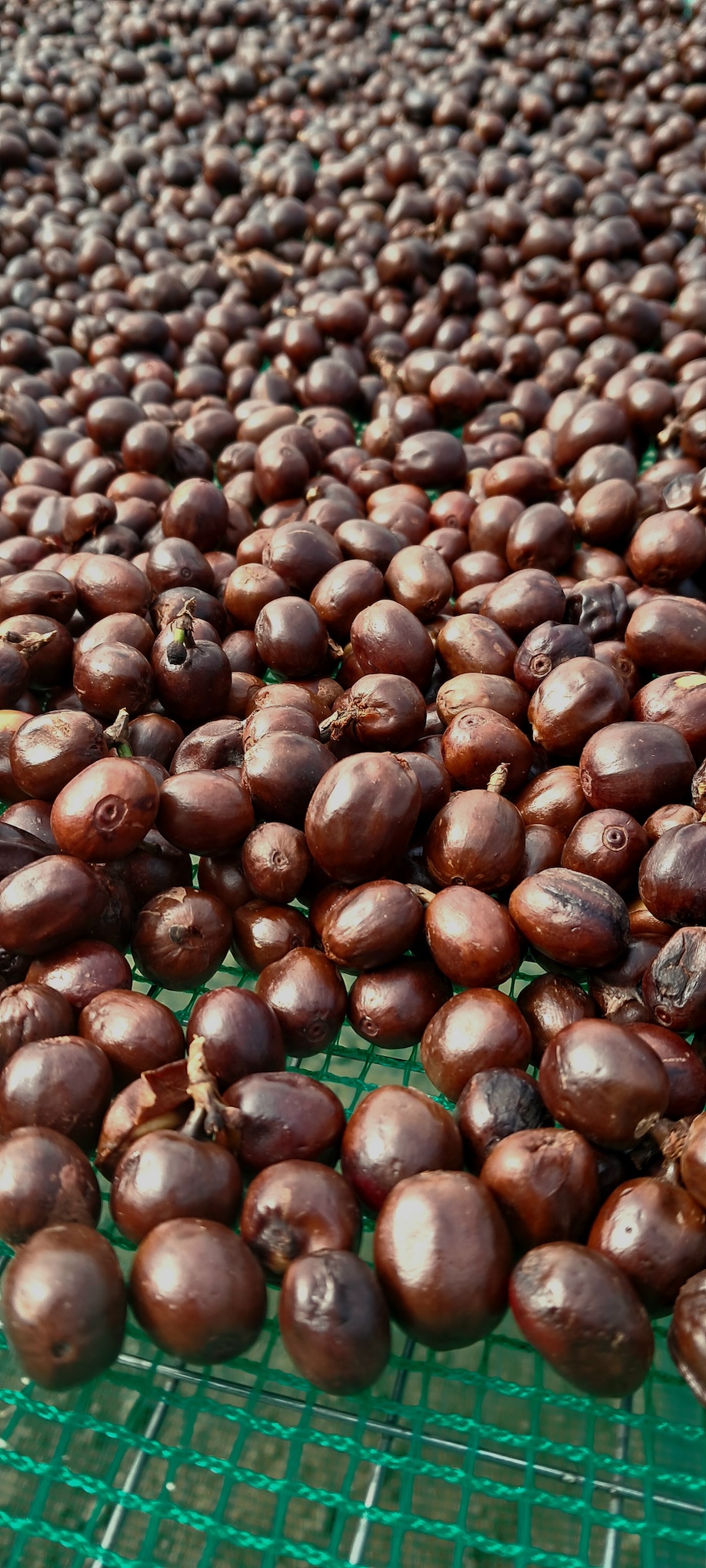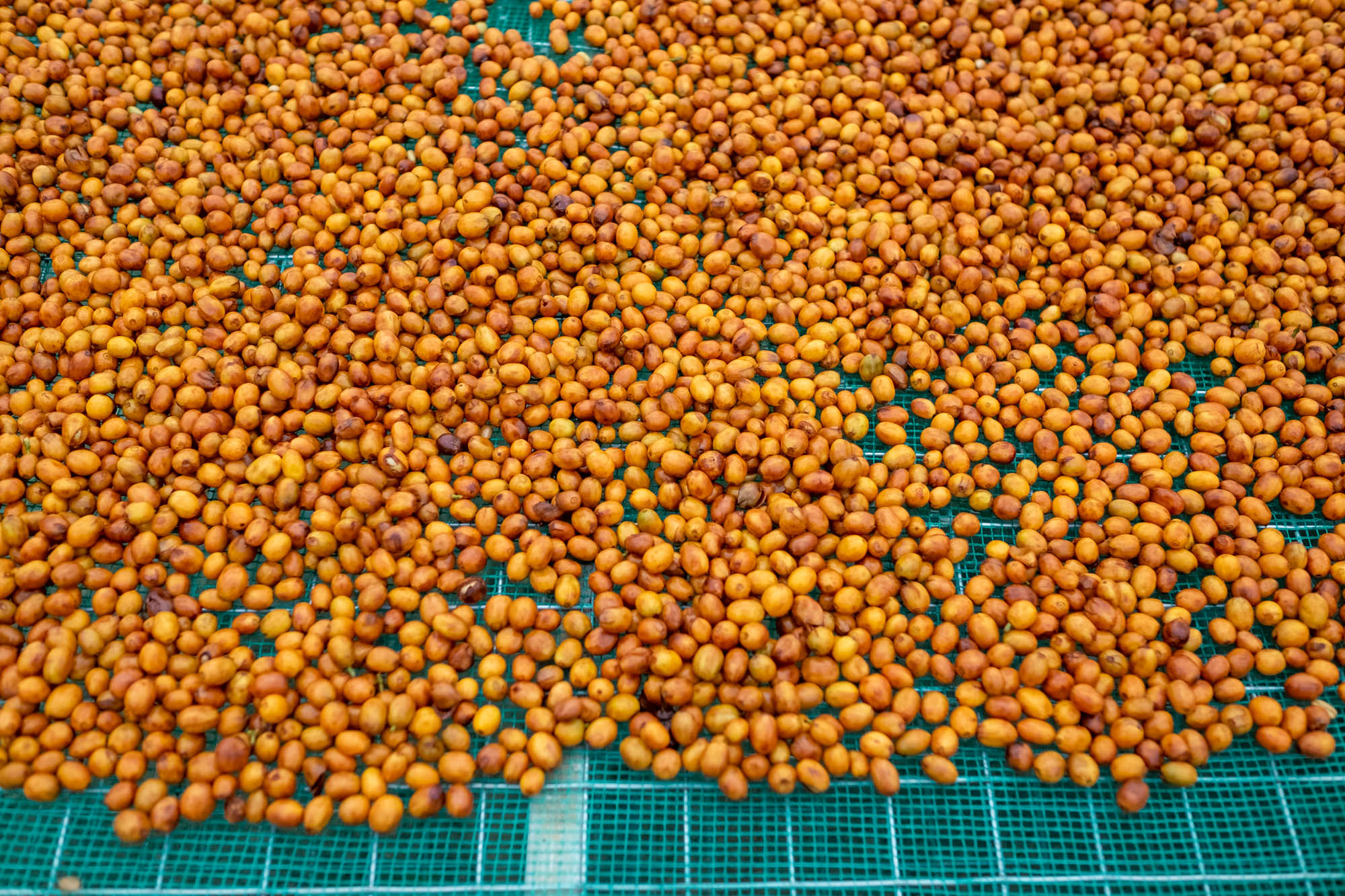Sticky beans
In various regions, the method known as honey processing is often referred to as "pulped natural," particularly in Brazil. Despite the name, no actual honey is added to the coffee. The term primarily describes the sticky mucilage of the beans and their color during the drying phase.
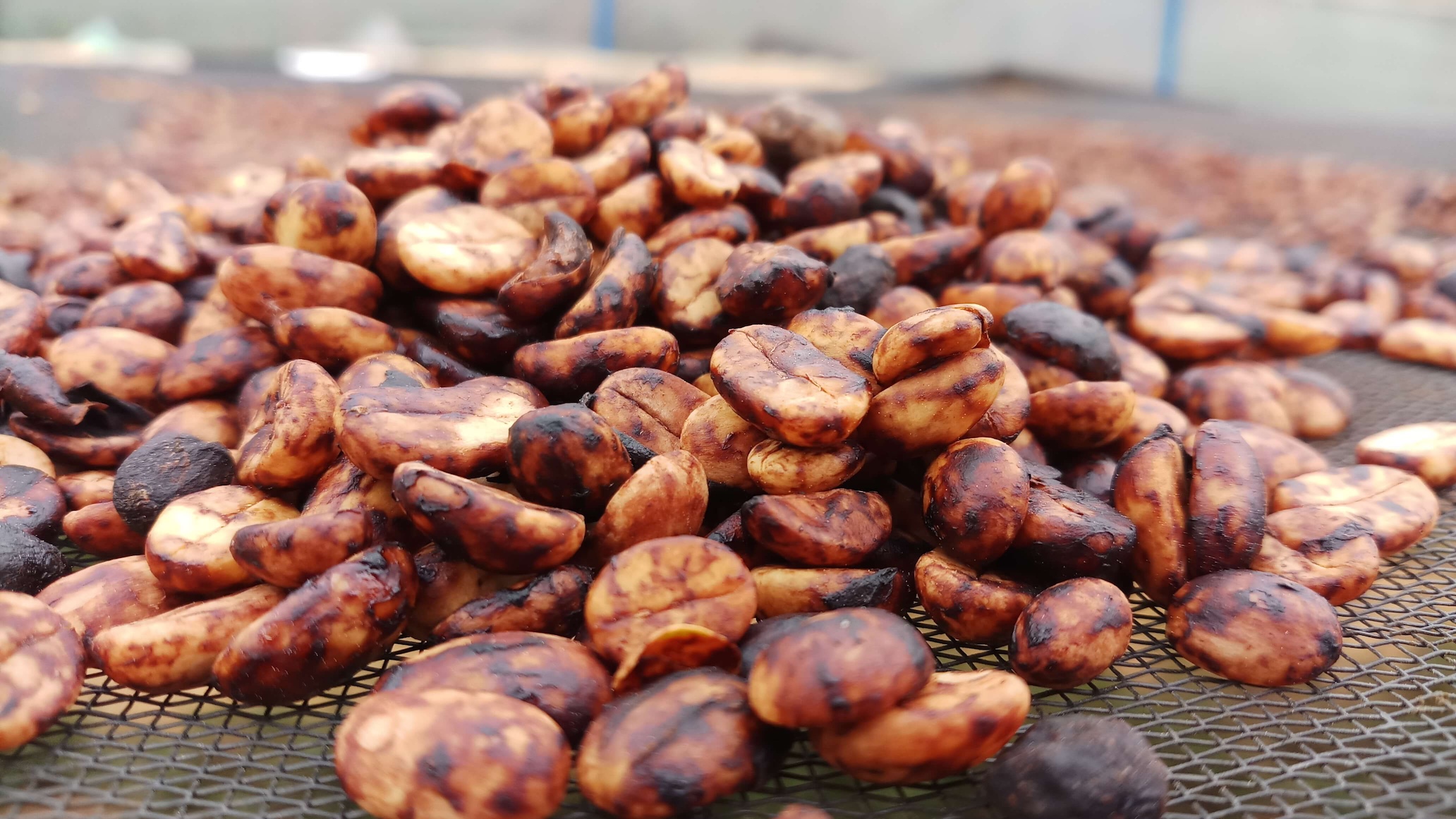
Color variation
Different producers have unique names for their honey-processed coffees, including black, red, yellow, and white honey. These classifications typically refer to the color of the parchment during the drying process or the fermentation duration. However, for us, they indicate the amount of sticky mucilage left on the pulped beans.
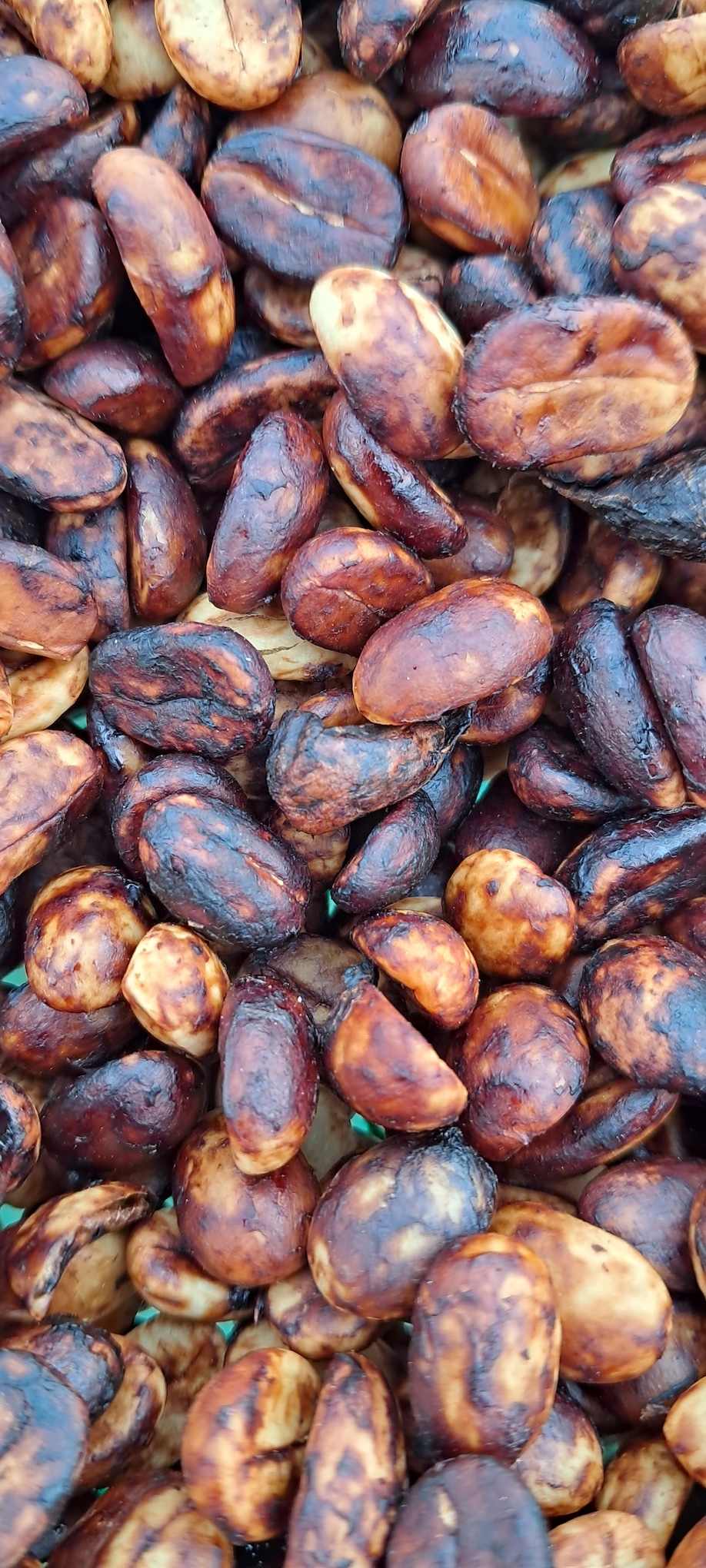
How is black honey processed?
Once the beans are pulped, they do not come into contact with water, allowing 100% of the mucilage to remain on the parchment. In contrast, red, yellow, or white honey coffees have varying percentages of mucilage removed, resulting in flavor profiles closer to washed coffees. When retaining all the sticky mucilage, it’s crucial to rake the coffee beans multiple times daily to prevent uncontrolled fermentation and ensure an even drying process.
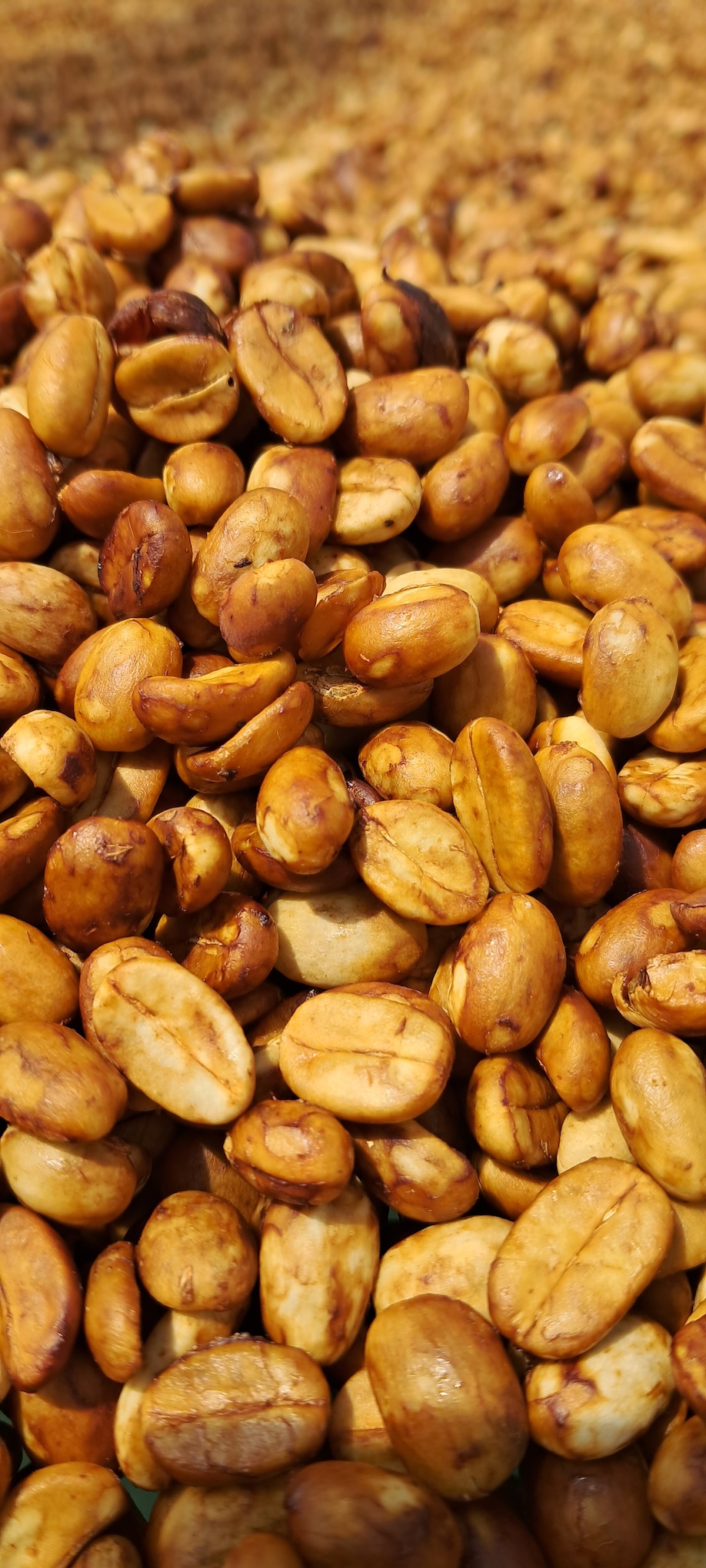
Properties
What can you expect? Black honey processed coffee typically has a rich flavor profile, the sweetness of brown sugar and caramel. Thick body and smooth mouthfeel with well-balanced acidity and chocolate finish.
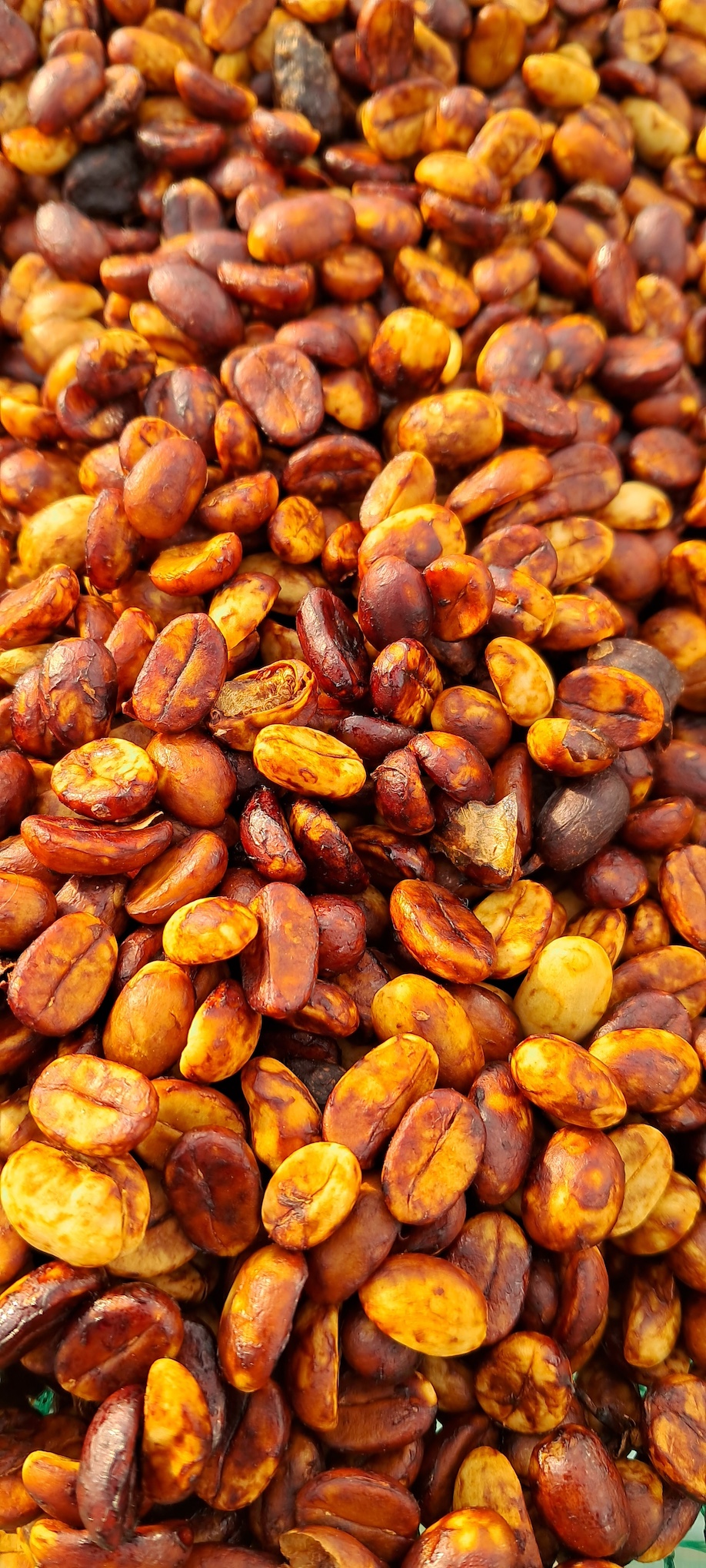
| Location | Langbiang Mountain plateau (peak 2167m), Lac Duong district, 15km from Dalat city |
| Altitude | 1500-1650 masl |
| Variety | Catimor |
| Harvest season | 2023/2024 |
| Producer | Zanya Cooperation, working together with over 30 smallholder farmers from K´ho ethnic minority |
| Bags in stock | 4 |
| Price | 260000₫/kg without VAT |


